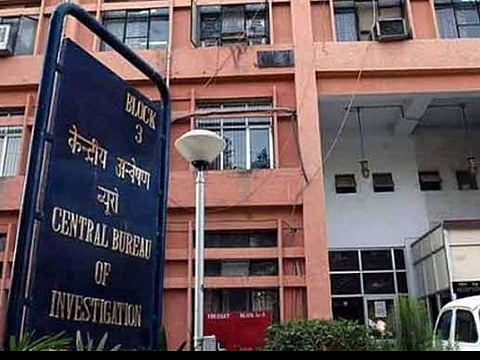Investigative agencies in India must stay impartial
Top courts have lashed at police, CBI for buckling under political pressure

Earlier this week India's Supreme Court bench led by Chief Justice lamented on the “disturbing trend” of police officers siding with the ruling party.
“Police officers who want to be in the good books of the ruling party misuse power and harass political opponents,” the top court’s judges said, asserting that police officers must stick to the rule of law.
This strong message comes at a time when the BJP government faces accusations of targeting political opponents through the misuse of agencies like the Central Bureau of Investigation (CBI) and the Enforcement Directorate (ED), and days after a nasty showdown in Maharashtra, where union minister Narayan Rane was arrested over comments about slapping the Chief Minister.
The ugly truth is that the police and agencies have been misused by parties in power for years now, and it has only gotten worse in recent years. What makes it worse is that senior officers are willing participants in this brazen misuse of the law, doing a grave disservice to their duties.
Semblance of independence
Agencies like the CBI were once respected for some semblance of independence in their investigations but today that is not the case. And it is not unique to the BJP.
In 2013, when the UPA government was in power, the Supreme Court made a scathing remark on the CBI, infamously calling it a “caged parrot” speaking in the voice of its political masters.
The then Law Minister Ashwani Kumar had to resign for allegedly interfering with the agency’s coal scam probe, which is what prompted the top court’s remark.
But what changed after 2014? Nothing. The caged parrot remains just that- parroting it’s master’s voice. So much so that this month, the Madras High Court issued a number of directions to the Central government to “release the caged parrot” that is the CBI.
The court said the CBI should be an autonomous body like the Comptroller and Auditor General that reports only to parliament. And then there is the Enforcement Directorate, or the ED, which is overseeing an unprecedented number of cases against opposition leaders.
Those who joined the BJP have seen their cases be put on the back burner, like Assam Chief Minister Himanta Biswa Sarma, who was named in the multi-crore Saradha chit fund scam when he was in the Congress.
A culture of intimidation
Not just political leaders but others who have been vocally critical of the government have been visited by authorities. Film maker Anurag Kashyap and actor Taapsee Pannu faced the ire of the income tax department. NDTV has been fighting multiple cases for years. The Narcotics Control Bureau, the NCB, has gone after Bollywood stars like Rhea Chakravarty, who has been caught up in a flimsy case from day one.
It isn’t just central agencies. Many states are equally guilty of misusing the police. Many on the other side of the ideological divide celebrated Narayan Rane’s arrest this week, but the misuse of the state police is a slippery slope, we need to steer clear of.
That is precisely what Chief Minister Uddhav Thackeray did by arresting Rane for making unparliamentary remarks which hardly warrant this kind of heavy handed action. In Bengal, the police has come under scrutiny over its handling of post poll violence, which forced the courts to hand over the probe to the CBI.
National Commission for Minorities vice-chairman and member of the NHRC team, Atif Rasheed, accused the state police of threatening the victims of post-poll violence in West Bengal and asking them not to file a complaint.
In Jammu and Kashmir, where there has been no elected government since 2018, police are often accused of harassing and even beating up journalists, such as during a recent Muharram procession in Srinagar which lead to action against the officers involved.
Ultimately, these agencies and the police need to be separated from the hold of the executive, with adequate checks and balances. Right now, they are merely seen as working under political pressure. This is not good for them or for India.









